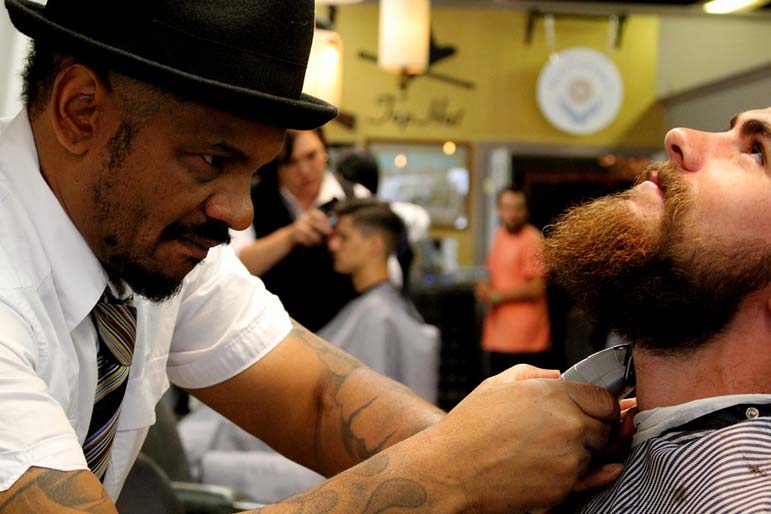
What we do, on the other hand, is often calculated to have the opposite effect. In this case, I'm talking about occupational licensing.
Even the Obama White House — no foe of business regulation in general — concluded that excessive licensing rules were costing jobs, and holding people, especially poor and minority people, back.
And the Obama White House was exactly right. In my own state of Tennessee, for example, you have to have a high school diploma to be a barber — and woe unto you if you don't — though there's not much need for trigonometry or English Literature in haircutting. Nor is that an old rule; it was adopted in 2015 for some reason.
There's even a proposal — which may qualify as the most corrupt and idiotic thing out there right now, which is saying something — to require that personal trainers be licensed
. It's corrupt because, as a recent investigation by Reason TV suggests, it appears to be funded by the soda industry, and it's idiotic because there's no reason to think the government, or some self-interested "standards group" given power by the government, has any idea how to tell a good trainer from a bad one.
Most occupational licensing is corrupt and idiotic, though. It's idiotic because no one needs a license to braid hair, arrange flowers, or do interior decorating, or 300 hours of training to shampoo hair, all real examples of occupations subject to licensure.
And it's corrupt because although it's couched in language about protecting the consumer, it's actually about fleecing consumers and protecting existing players from competition via government power.
As Milton Friedman once observed in his book, Capitalism and Freedom, "The pressure on the legislature to license an occupation rarely comes from the members of the public who have been mulcted or in other ways abused by members of the occupation. On the contrary, the pressure invariably comes from members of the occupation itself."
Requiring a high school diploma may not produce better barbers, but it will produce fewer barbers, which means less competition for existing barbers. This is how occupational licensing generally works. Legislators know that existing members of an occupation will be grateful for the protection; the people who are left out (and the consumers who pay more) aren't organized the way existing barbers, or opticians, or flower arrangers are.
And if you get a license, and then want to move, you usually have to go through the licensing procedure again in your new state, because they want to limit competition from outsiders.
It's made worse by the fact that the regulatory boards are almost always made up of members of the profession being regulated. That means that the rules they make are almost always designed to protect their members, not the public, no matter what they say.
Echoing the Obama administration, Secretary of Labor Alexander Acosta has called for a reduction in licensing. And my own state of Tennessee in 2016 passed the Right To Earn A Living Act, which requires that license requirements be justified. But we need more.
I think that Congress should look at this problem, and under its 14th Amendment powers to protect civil rights against state interference (and the right to earn a living is such a right) it should limit state occupational licensure, and require that states recognize other states' licenses.
And I think that where such regulatory boards exist, they should have to have a majority of members from outside the occupation they regulate, so that they represent the interests of consumers, rather than forming a cartel or guild for the occupation.
It's hard enough to get ahead in the 21st century. We should be making it easier, by taking down barriers, rather than making it harder by adding new ones.
Comment by clicking here.
Glenn Harlan Reynolds, a University of Tennessee law professor, is the author of The New School: How the Information Age Will Save American Education from Itself and is a columnist at USA TODAY.


 Contact The Editor
Contact The Editor
 Articles By This Author
Articles By This Author